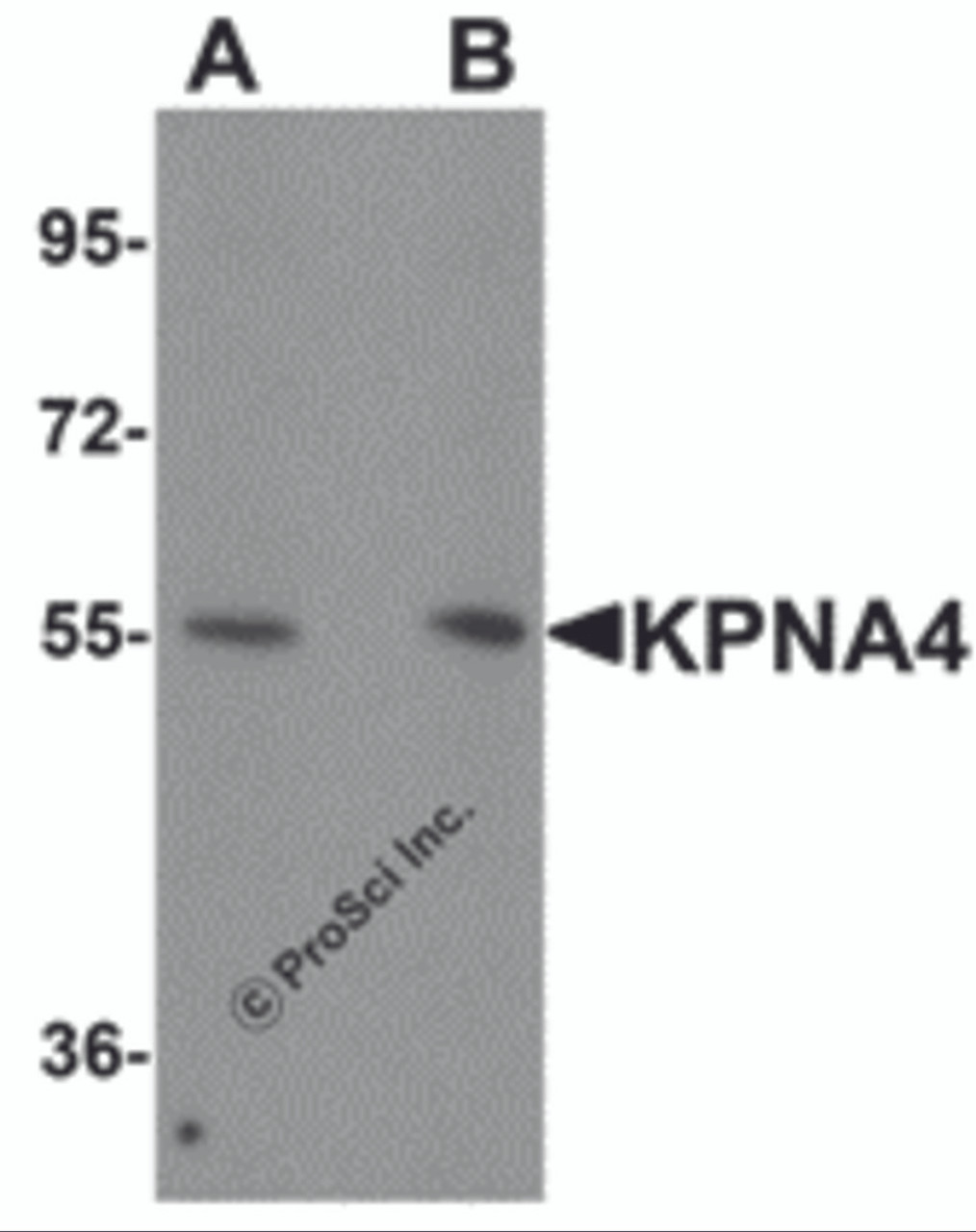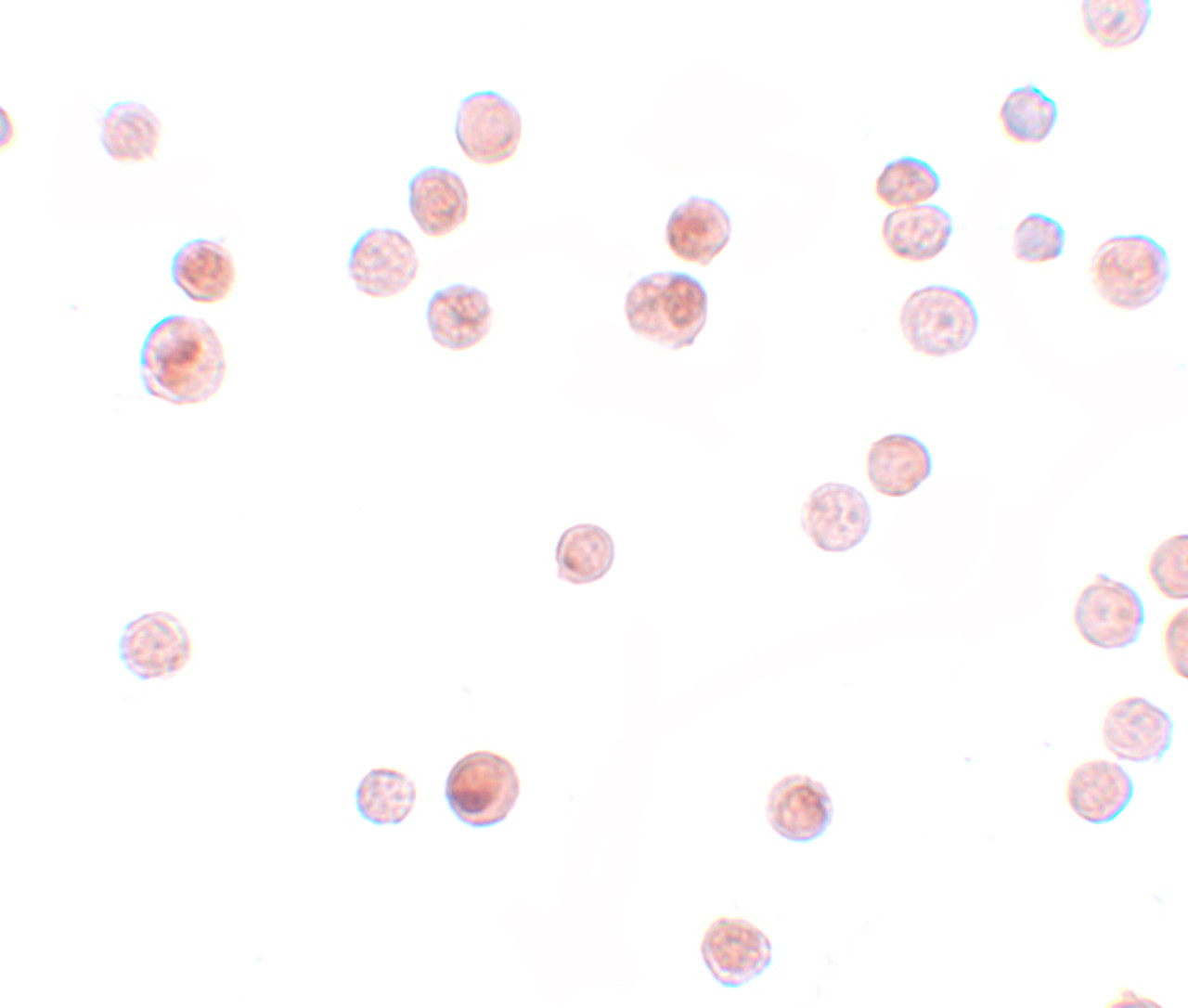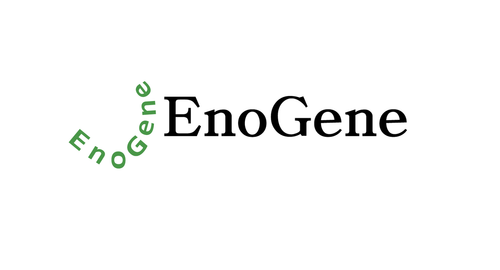Product Description
KPNA4 Antibody | 5987 | ProSci
Host: Rabbit
Reactivity: Human, Mouse, Rat
Homology: N/A
Immunogen: KPNA4 antibody was raised against a 15 amino acid synthetic peptide near the amino terminus of human KPNA4.
The immunogen is located within amino acids 30 - 80 of KPNA4.
Research Area: Homeostasis
Tested Application: E, WB, ICC, IF
Application: KPNA4 antibody can be used for detection of KPNA4 by Western blot at 1 μg/mL. Antibody can also be used for immunocytochemistry starting at 2.5 μg/mL. For immunofluorescence start at 20 μg/mL.
Antibody validated: Western Blot in human samples; Immunocytochemistry in human samples and Immunofluorescence in human samples. All other applications and species not yet tested.
Specificiy: N/A
Positive Control 1: Cat. No. 1304 - Human Liver Tissue Lysate
Positive Control 2: Cat. No. 17-001 - HeLa Cell Slide
Positive Control 3: N/A
Positive Control 4: N/A
Positive Control 5: N/A
Positive Control 6: N/A
Molecular Weight: N/A
Validation: N/A
Isoform: N/A
Purification: KPNA4 Antibody is affinity chromatography purified via peptide column.
Clonality: Polyclonal
Clone: N/A
Isotype: IgG
Conjugate: Unconjugated
Physical State: Liquid
Buffer: KPNA4 Antibody is supplied in PBS containing 0.02% sodium azide.
Concentration: 1 mg/mL
Storage Condition: KPNA4 antibody can be stored at 4˚C for three months and -20˚C, stable for up to one year. As with all antibodies care should be taken to avoid repeated freeze thaw cycles. Antibodies should not be exposed to prolonged high temperatures.
Alternate Name: KPNA4 Antibody: QIP1, SRP3, IPOA3, QIP1, Importin subunit alpha-3, Importin alpha Q1, Qip1
User Note: Optimal dilutions for each application to be determined by the researcher.
BACKGROUND: KPNA4 Antibody: Karyopherin, a cytosolic and heterodimeric protein complex consisting of alpha and beta subunits, is responsible for targeting proteins with nuclear localization signals to the nuclear pore complex by an energy requiring, Ran-dependent mechanism. The alpha subunit and imported substrate enter the nucleus and accumulate in the nucleoplasm, while the beta subunit accumulates at the NPC. Molecules containing the classical nuclear localization signal (NLS) are transported into the nucleus by alpha/beta heterodimers. KPNA3 has been shown to be important in the TNF-α-induced nuclear import of NF-κB. It is also involved in the stress-mediated nuclear stabilization of p53 and the nuclear import and replication of HIV-1 in both dividing and non-dividing cells.
 Euro
Euro
 USD
USD
 British Pound
British Pound
 NULL
NULL












